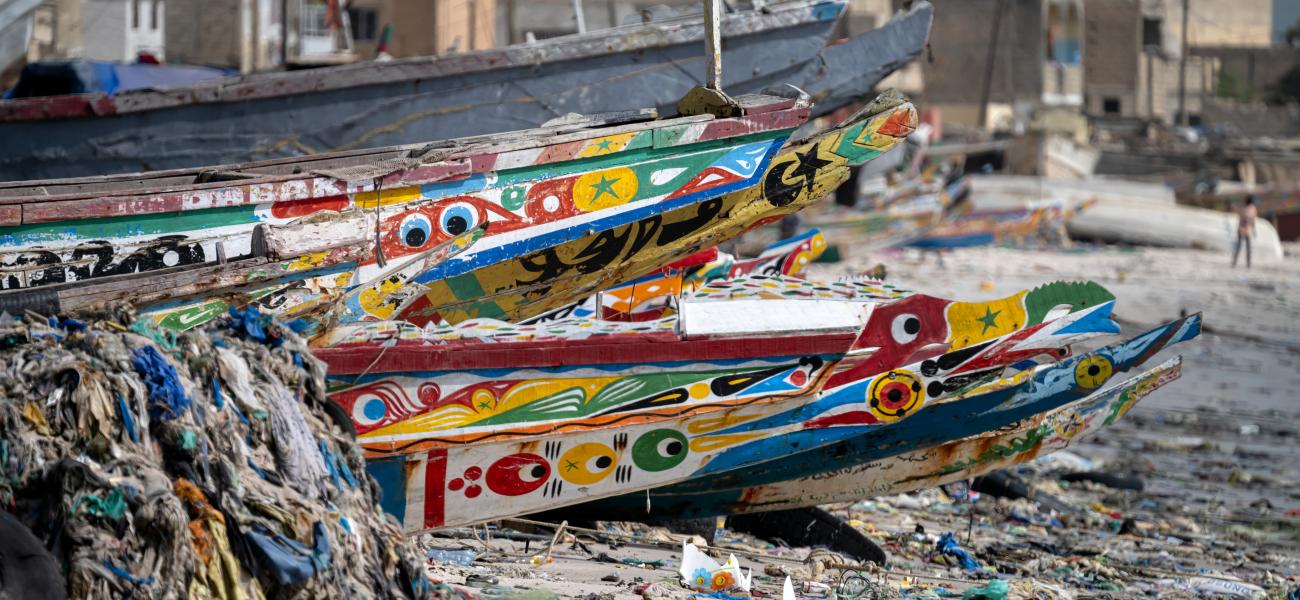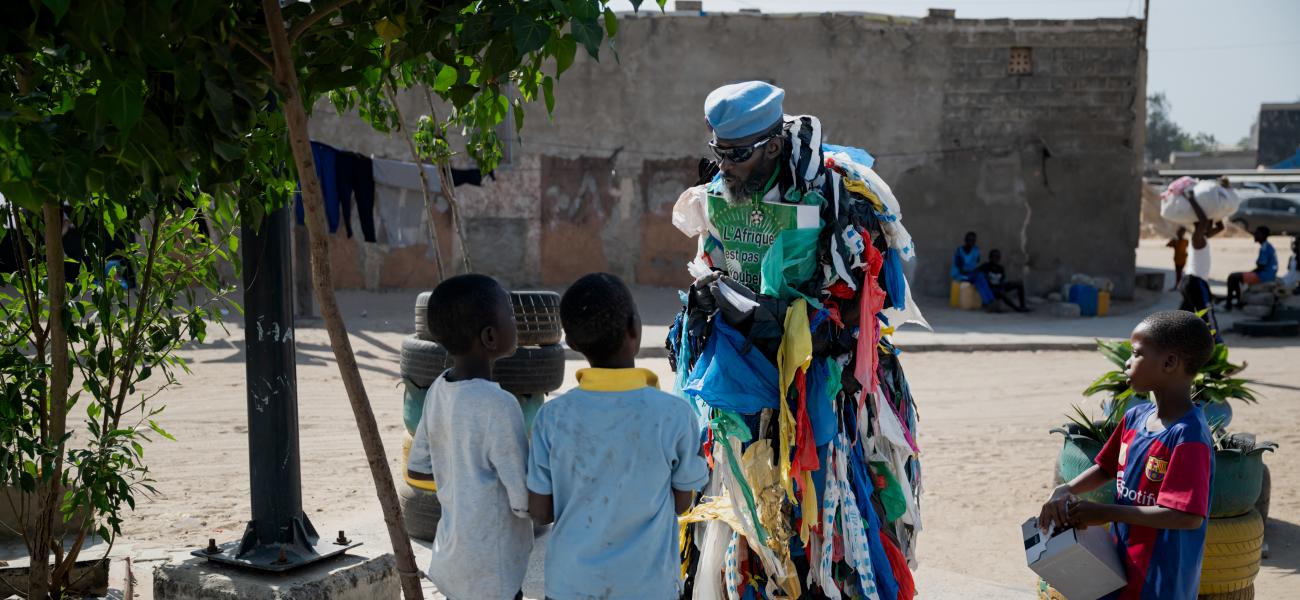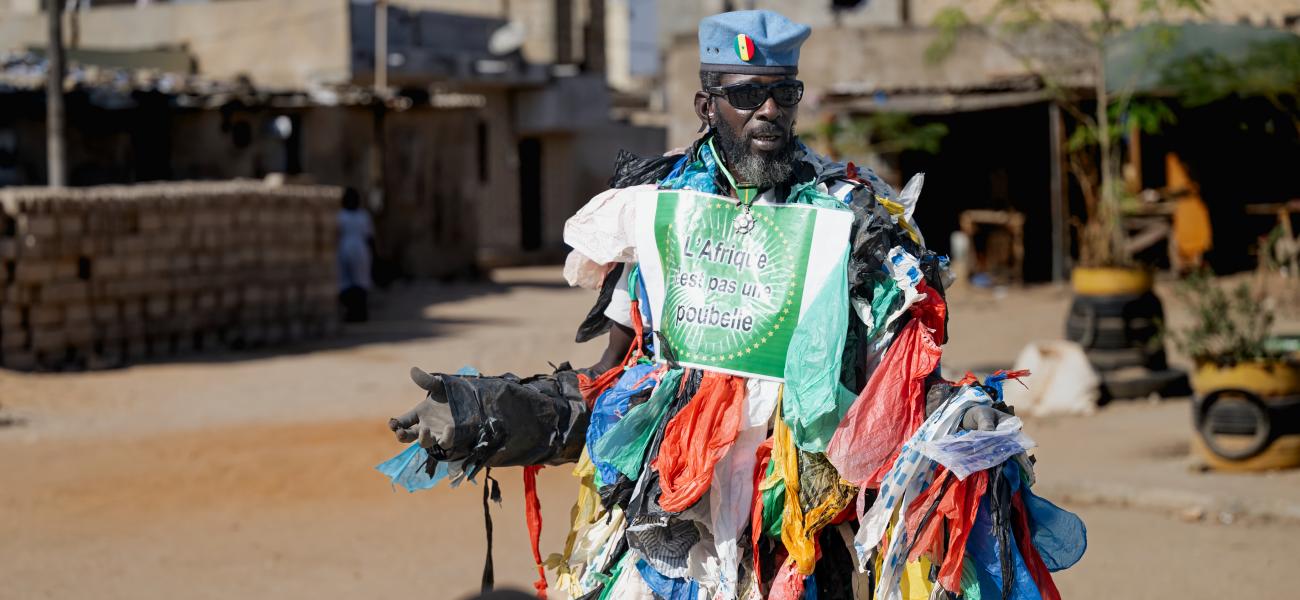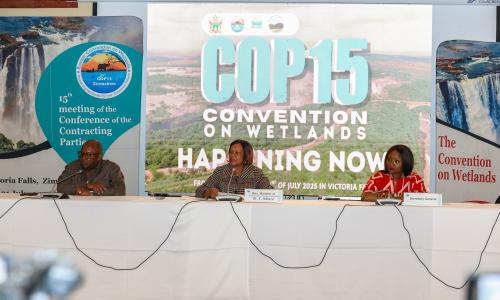In a quiet corner of Medina Gounass, on the outskirts of Dakar, Senegal, one man has taken it upon himself to breathe new life into a place many had abandoned.
Where mountains of plastic waste once sprawled, a green oasis has sprung up, thanks to his relentless determination.
Mr. Modou Fall, popularly known as the “Plastic Man,” embodies a struggle that goes beyond recycling. He is an activist, an educator, and a campaigner for a cleaner planet and a more sustainable future.
From dump to sanctuary
In 2020, when the world was grappling with the COVID-19 pandemic, Modou Fall was on a different mission. Medina, his neighbourhood, which was once a vibrant place bustling with all manner of activities, had become neglected and over time seen the exodus of its inhabitants. After several floods, the area slowly became a dumping ground.
“At first, there was nothing but garbage and a few crumpling walls,” he recounts. “But I knew something could be done about it.”
Where others saw an unsalvageable space, Mr. Fall saw immense potential. With a team of volunteers, he began to transform the space by planting trees, setting up educational displays and repurposing discarded materials.
“Each piece here tells a story. We salvaged these objects to give them a new life,” he told Africa Renewal in an interview in Dakar.
Cleaning up waste was just the beginning, Mr. Fall wanted to change mindsets through raising awareness. He quips: “The problem isn't just the garbage we throw away, but our relationship with plastic.”

Through educational programmes and workshops, Mr. Fall teaches children to recycle and reuse materials they would otherwise have considered garbage. He wants the youth to see waste not as garbage, but as raw material for creativity and sustainability.
For example, old car tyres can be transformed into chairs, while plastic bottles can be turned into decorative pieces.
“We need to show children that waste can have a second life,” he explains. “If we teach them that today, they'll change their habits tomorrow.”
But education alone is not enough. He stresses the importance of structural change and calls for better regulation of waste management. He remains a vocal advocate for stronger waste management policies and stricter environmental regulations. “If we don't act now, plastic pollution will spiral out of control,” he warns.
A commitment
Fortunately, “The Plastic Man’s” efforts haven’t gone unnoticed – they have earned him national recognition from authorities who honoured him for his environmental efforts. Yet this recognition did not come without pushback.
Undeterred, he continues his fight, exposing harmful practices with determination. One of the major issues he campaigns against is the discharge of toxic chemicals into the local water system by some industries.
“A few years ago, we still could see frogs here. Today, there are none. They are all gone,” he laments.
He also notes that, despite the ban on single-use plastics, plastic bags remain a common sight—sold, used, and discarded on the streets.

Plans for a greener future
Mr. Fall’s goal to create greener spaces stretches beyond his neighbourhood. His next big project? An ecological training centre where young people can learn to design and develop sustainable solutions to pollution.
“We need to go beyond just cleaning up. We need to understand why we are where we are, and find long-term solutions,” he insists.
He also envisions a space where students can come to watch educational documentaries on the environment, saying: “Tomorrow, they're the ones who will have to protect this planet. They need to know what they're up against.”
At the same time, Mr. Fall is working with local artists to create art pieces from recycled waste. Which, he believes, transforms his awareness-raising into an immersive, interactive experience.
“When you see a recycled object become a work of art, you immediately understand its value,” he explains.
He also plans to introduce regular clean-up drives with community members to foster a culture of collective responsibility. “If we do this every month and make it a habit, we can transform our entire environment.”
The Plastic Man is not your typical activist. He doesn't just rely on slogans or speeches – he leads with action.
“People often say that what we are doing is a just drop in the ocean. But what is the ocean but a multitude of drops?”
His journey is proof that one person’s determination can spark change. A plastic bottle recycled, a tree planted, a child educated—every action counts.
As we part ways after the interview, he leaves us with a powerful message:
“We are the guardians of this planet. Each of us has a role to play. It doesn't matter where we come from or what we have. What matters is what we do.”





